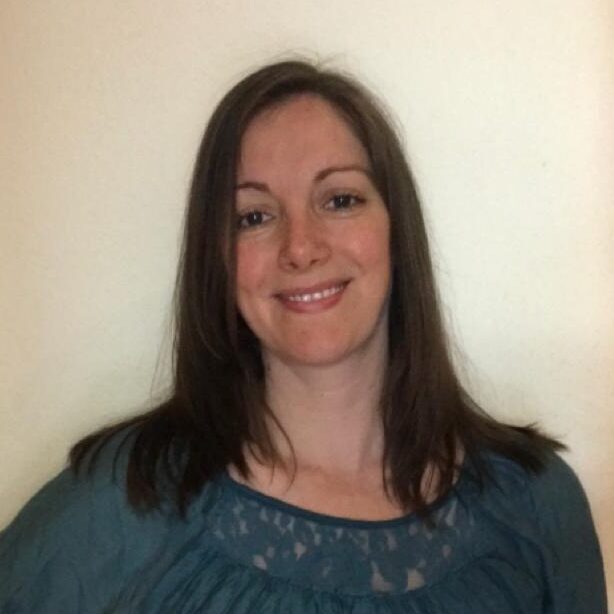In one word – yes! YWAM workers are Bible translators. YWAM workers are also facilitators for translation projects, and we are training facilitators in our Oral Bible Translation (OBT) schools. What does this mean? Perhaps it’s easier to share some of the history of YWAM’s involvement with Bible translation over the years to help explain not only where we are now, but how and why, as usual, we are doing things a bit differently….
The College of Applied Linguistics and Languages (CALL) which is a part of the University of Nations (U of N) has a new website that gives a great overview of the history of OBT, beginning in 1967 with YWAM Founder Loren Cunningham’s Legacy Word – The Woman in the Red Dress. A few of the events are highlighted here for a broader overview.
Over 40 years ago in 1982, YWAM Brazil began training traditional Bible translators. Likely, the names you most associate with YWAM and Bible translation today are Brazilians Marcia and Edson Suzuki. These long term YWAM workers trained under Wycliffe, Summer Institute of Linguistics (SIL) and later university graduate courses in linguistics in the 1980’s and 1990’s initially to work with tribes in the Amazon jungle. They, like other traditionally trained translators, took courses in phonetics, anthropology, discourse analysis, etc. Then they would go to a bibleless people group, learn the native language to a fairly fluent degree, and with the help of one or more locals, translate the Bible into that language in a written format, often starting with a New Testament book. This process would take one translator many years from start to finish. The Suzukis did things differently.
Another YWAM milestone took place in 1988 when some School of Biblical Studies (SBS) students from India translated the New Testament into the Khoibu language during their SBS in Hawaii. Evynn Schlender from YWAM’s Bible Education and Leadership Training (BELT) schools shared, “Their language was completely bibleless before this. SBS partner Ron Smith partnered with them on this project.”
Back in Brazil, the Suzukis were working among the Suruwaha tribe in the Amazon in the 1990’s and 2000’s. The Suruwaha believe that spiritual truth is not communicated through mere written words – for them it is communicated through song. Their rejection of literacy led the Suzukis on “…a long quest to understand the interaction between spirituality, orality, and literacy in different cultures.” After a couple of years they came up with an alternative and began translating Genesis using a completely oral process. In 2000, the Suzukis started translating the Bible orally for the Suruwaha tribe, but faced a lot of criticism from other organizations and they decided to stop the process.
More than a decade later, thanks to experienced translators like Dr. Bryan Harmelink from Wycliffe Global Alliance, the Suzukis, Gail Presnall and others, YWAM began developing a unique method of Bible translation to serve the current needs of oral cultures. Facilitator training started during the first Masters in Applied Linguistics in Bible Translation (MALiBT) modular school in 2017 and the following year the first English speaking OBT began in Arizona, USA. This method differs from traditional training in several ways:
- A servant mindset. As a facilitator, you come in to serve the needs of the bibleless community prepared to share biblical stories, listen to their stories, learn from them, build relationships and more. This mindset is already breaking down barriers and helping to restore dignity as facilitators become the students and the community members are seen as the experts in their culture.
- A group mentality. The majority of the work does not rest on one facilitator and there should be a minimum of three mother tongue speakers who serve as the translation committee. Some facilitators may already be trained in biblical background, or have frontier missions experience, while others have tech or admin skills, etc. YWAM workers already have many skills and talents needed to serve in translation!
- An oral process. Most of the remaining bibleless languages are either oral or signed – there are roughly 250-400 known sign languages and only one has a complete video Bible version, the American Sign Language Version (ASLV) completed in 2020. These languages need a different approach than the traditional written languages. For many oral and Deaf communities, communication happens best through stories. We are shifting the OBT school curriculum to an oral story format from the start in order to already think and operate as oral cultures do. One of the biggest challenges for those coming from a western context will be to shift their thinking from a linear/ abstract /written environment to a relational/ concrete/ oral one. Recordings of the stories are happening throughout the translation process to serve as documentation. A bibleless community can also choose if they want to have a written version of the final oral recording.
- Old Testament narratives. The New Testament is completed in several written translations and there is a general need to focus on the Old Testament. YWAM workers who have taken the MALiBT or consultant training courses have had Hebrew training and are also serving as facilitators. OBT schools often start with the book of Ruth or Jonah as they are short and already in story format. Staff and students internalize these stories by listening to them repeatedly and by learning about the biblical background, exegesis to gain understanding. Then they share the story in the local trade language and then translators retell it in the mother tongue.
- A holistic approach. Former OBT student Alysa Sharp said it well, “Something God highlighted to me before I ever thought about translation was about bringing restoration to people. And that in order to do that, it must be rooted in His Word, established upon the sure foundation of truth—to heal, to educate, to empower, to give voice. For the foundation of His house would be His Word! As my classes began, I learned quickly how the OBT approach is based on holistic translation. It’s about the whole person, the whole language, and the whole community to bring transformation through the Word of God. When we talk about people groups who have never had the Bible in their language, much less heard about Jesus, there has to be a willingness to go low and go slow. We need to be a humble people who don’t come in with answers, but instead with compassionate hearts and surrendered hands.”
Why now?
- Cooperation among major mission organizations is stronger than ever and they are sharing information with each other that they haven’t before. This is especially true in the last decade. This sharing allows them to see where the actual needs are and even where work has been duplicated, bringing more efficiency to fulfilling the Great Commission.
- Many more people speak at least two languages these days, including mother tongue speakers of bibleless languages. Some communities use three or more languages daily depending on their tasks. Those that are highly bilingual in their mother tongue and a local trade language make ideal translators.
- The End Bible Poverty Now (EBPN) goals go hand in hand. Translation and publication are happening during OBT projects and now engagement as well. “Bryan Harmelink: In a sense, what you find through the methodologies being used for OBT is a much more immediate engagement with Scripture. And even reversing the order that we’ve traditionally had of ‘do translation, then people engage with Scripture.’ In the OBT process — and sign languages are similar in this way — there’s a lot of discussion that has to happen around the questions that need to be answered in order to translate.”
- The last two decades and especially this year, Loren Cunningham has been tirelessly calling YWAM workers to engage in Bible translation. Our multitudes and strategic locations make us ideal boots-on-the-ground candidates for this, but we need YWAM workers to realize this potential. Even those in Europe have a role to play! Outreach locations, friends, colleagues…what connections do we already have that may connect us with a bibleless language? “David Brooks, Senior Advisor for Strategic Partnerships with the Alliance, Global Partnerships and SIL, believes YWAM’s further entry into OBT will dramatically impact global Bible translation. ‘This movement has been going for years but it needed a wake-up call and YWAM has provided that,’ he says…. I feel our partnership with YWAM does two things. It helps us rethink old ways of doing our work and brings in a large group of young, passionate believers from all over the world who are ready to see all get his Word now.’”
YWAM has committed to start translation on 1000 oral bibleless languages by December 2025. We join others with the goal to have all bibleless languages started by 2033. This September we are running OBT courses in Kona, Switzerland, and South Africa. Samoa just started one mid August. There are many other opportunities as well. How will you or your ministry location take part in this timely movement?
Jessy, an American, joined YWAM in 2007 first as a dancer, then teacher, accountant and now advocate. She has spent one third of her life in Europe, mainly in Berlin with her German husband, Tobi and three children. A few passions include reading, learning, and advocating for the Deaf and the bibleless through Bible translation.



